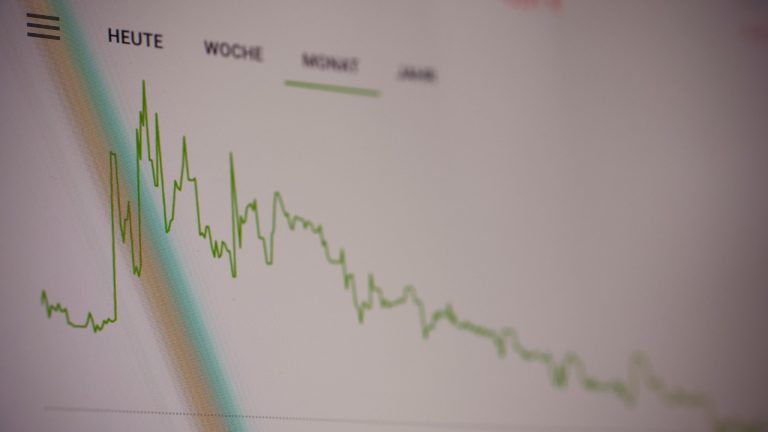Stocks fell on Monday, the start of a holiday-shortened week of trading, as investors considered new virus-related restrictions in other countries and worried that a significant social policy bill might be shelved.
The S&P 500, Dow Jones Industrial Average, and Nasdaq Composite dropped more than 2% in intraday trading. Treasury yields declined as investors rushed into haven assets, and the benchmark 10-year yield stayed below 1.4 percent. The VIX spiked more than 20% to close at 25 for the first time since 2015
Oil prices fell 3% to trade below $69 per barrel on concerns about oil demand as Europe’s restrictions piled up. In recent days, Germany, Ireland, and other nations have imposed curfews or travel limitations to the fast-spreading new variant. Until January, the Netherlands announced a nationwide shutdown of non-essential stores, bars, and restaurants.
Last Thursday’s comments from the European Central Bank (ECB) about QE tapering and concerns for investors over the prospects of increased monetary policy prompted by the Federal Reserve’s rate of asset-purchase reduction has triggered fresh worries about the economic impact of Omicron. Last week, the three major indexes each dropped by over 6%. The Nasdaq Composite declined 3% this week, while the S&P 500 and Dow both fell by more than 2%.
Still, other updates around the effect of current COVID-19 vaccines on the variant were more upbeat. Moderna (MRNA) said Monday that a booster, or a third dose, of its shot, increased Omicron neutralizing antibody levels. The contention that the third dose of Moderna’s vaccine is ineffective in preventing Omicron was also confirmed by Pfizer (PFE) and BioNTech (BNTX) earlier this month. Shares of Moderna rose more than 7% before the market opened.
The unexpected twist that Sen. Joe Manchin (D., W. Va.) would not support President Biden’s $1.75 trillion Build Back Better social policy proposal also piqued investors’ interest. The measure, which Manchin called “a compromise in name only,” failed to pass the Senate on Monday, when Democrats lost their filibuster-proof majority. The moderate Democrat said he had spoken with Democratic House and Senate leaders and Biden about the legislation but could not reach an agreement due to worries about inflation, debt levels, and ongoing pandemic.
The White House Press Secretary, Jen Psaki, described Manchin’s comments as a “sudden and inexplicable reversal” in the administration’s position. The administration will work to continue with the bill in 2022.
On the other hand, Goldman Sachs reduced its 2022 GDP predictions this weekend following Manchin’s opposition to the bill. The economists, led by Jan Hatzius, now believe that next year’s “fiscal impulse” will be somewhat worse than previously anticipated in the absence of social and environmental spending included in the legislation. For the first quarter of 2022, the firm reduced its U.S. GDP prediction to 2% from 3%, 3% from 3.5% for the second quarter, and 2.75% from 3% for the third quarter.
11:41 a.m. ET: Stocks extend losses, Dow drops nearly 700 points
The three main indexes continued falling through the afternoon session, extending yesterday’s losses as fears of a new virus spread.
Shortly before noon in New York, the Dow fell more than 650 points or roughly 1.9 percent. The Nasdaq dropped by less than 1%, while the S&P 500 declined by approximately 1.9%.
The S&P 500 was in negative territory for the first time since December 2015, with all 11 main sectors in the red. The cyclical energy, financial, and materials industries were the most significant movers. Consumer staples, utilities, and healthcare outperformed the market during the session, although these areas were also lower at one point.
In the Dow Jones Industrial Average, Goldman Sachs, The Travellers Cos. and Caterpillar underperformed.
10:28 a.m. ET: Oracle plans to buy Cerner Corp. for $28.3 billion in largest-ever acquisition for the software giant
On Monday, Oracle (ORCL) said it intended to acquire Cerner Corp. for $28.3 billion, making it the largest transaction in its history. It would be Oracle’s biggest-ever acquisition.
According to sources, Oracle and Cerner have agreed on a $1.5 billion stock-swap deal expected to be completed in early 2020. It will give Oracle access to Cerner’s collection of software used to capture healthcare data electronically and provide the company with cash and shares worth about $1.4 billion, each
Following the announcement, Oracle stock fell 2.6%, significantly underperforming the market throughout the session. Through Friday’s close, Oracle shares had advanced 49% for the year.




